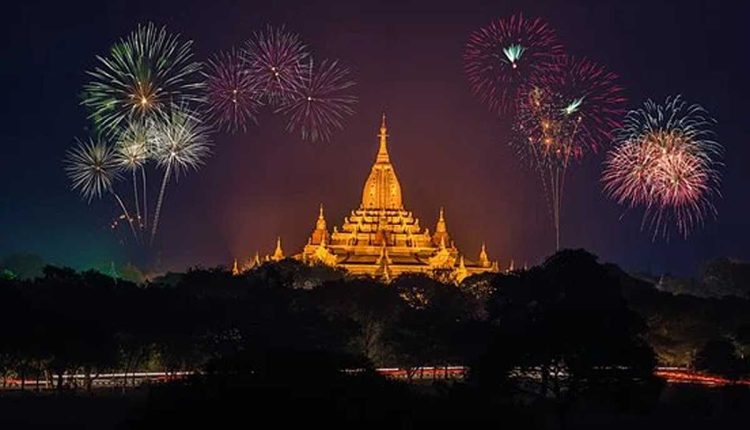Exactly what is spirituality?
Spirituality is everyday activity. It is kindness. It is acknowledgement. It is practice, and it is enlightenment, as well as the opposite of all these kinds.
Spirituality is a redundant concept because, somewhat like like, it has been overused. Suppose we use it with any specificity, as I think we should. In that case, we should instead gather together all. There are just said, together with the excess definitions offered by others concerned with the so-called bigger worlds and undertake a new house-clearing so that we know everything we are talking about. If not, why don’t you think of a new word entirely? –because the function of language is to communicate.
Nowadays, we have a Tower regarding Babel situation; just shop around at the vast array of spiritual instructors, religious traditions, and new and ancient spiritual philosophies, which can be sometimes confused, vague or perhaps obtuse, but always puzzling. If we are to talk truly, I don’t think spirituality should be any different from cooking food, medicine, or money. Within these spheres regarding endeavour, if you are as puzzled as people seem to be inside the spiritual sphere, you would end up speaking nonsense with disastrous consequences.
So what is the meaning we should use to inform people?
Spirituality is the term that will describe the higher functioning of human beings. Without a spiritual shape, human beings are engaged only with animalistic concerns, like belonging to a group, mating and procreation, acquisition and physical security. In the intermediate levels of human development, we could concern with identity, socialization, consideration for others and individual liability. Spiritual philosophies and systems are those that envelope many of these and go on to suppose a higher aspiration for people’s fulfilment; an intrinsic have to have, felt by many, that we are more than we seem to be and the world of appearances is not all of there is.
Like Abraham Maslow’s hierarchy of needs?
Without a doubt, like self-actualization and summit experiences in Maslow’s unit. But also like the insights with the Upanishads, the Dhammapada, often the Course in Miracles, Yoga Buddhism, mystical Christianity, Sufism, and on and on through transpersonal systems and spiritual atlases too numerous to mention. What they have in common is individuals striving for the ultimate comprehension in the belief that one thing elusive beyond the field of appearances gives meaning and significance to life.
Why is spirituality a concern of relative people?
Spirituality is universal. It truly is everyone’s concern to discover who they are through physical, mental, mental, soulful and faith-based levels of the human predicament. We all cannot judge how personal people are engaged with this, yet arguably whatever a person is carrying out — thinking, working, creating relationships, vacationing — is surely an attempt to balance, engage with and understand self and the planet. It’s a response to the fair, tacit question of lifestyle.
And that question is?
Who also am I? No one is without any consequences of this question. The sole difference is in how we tend to answer it; in self-referral, self-definition or self-transcendence.
Why not consider the etymological origins of the word? Spirit means air, doesn’t it?
Spiritusmeans air, and espiritus often means the breath of God; that is certainly the word from which we uncover our term inspiration. Consequently, the spirit is about breath, often the divine breath prajna, often the interchange with the universe most of us experience when we breathe in in addition to breathing out. When I inhale, inspire, the universe breathes available or inspires me; as I breathe out, the universe breathes in, or I encourage it. Which is it? From a spiritual standpoint, there is no change because the universe and I are similar.
Spirituality is about a new relationship between soul, energy and body.
Spirituality is additionally associated with questing in the form of any journey. It appears that we must embark on a spiritual voyage, any quest, or some sort of experience in which we are somehow transformed through suffering. The forwards moving narrative of that experience, the active search for that will undertaking, has been key to thoughts of spirituality for centuries. According to where and when we were lifted, it took the form of the Pilgrim’s Progress, the Ramayana, the particular legend of Siddhartha, Dante’s journey through the underworld, the particular Native American vision pursuit and so on. Each of these narratives has in common the rule theme of striving towards a new spiritual goal through effortful persistence, strong will, and determination.
Curiously very few of these spiritual maps see further than effort. It is as if I’m rewarded only when we generate ourselves hard. Yet non-secular realization is epitomized by acceptance, receptivity, humility and surrender — all very soft attributes. Examining these accounts, you would imagine that the only way to heaven is definitely through hell.
And just isn’t it?
Heaven and nightmare are points of view. You enter either one at any minute through your predisposition, which depends on your attachment to the confidence or separation from the remaining existence. In various articles, Jacques Lusseyrian, while incarcerated in Universe War II and Port st Lucie John of the Cross in a Toledo jail in the 16th Century, experienced profound non-secular and divine epiphanies, even though enduring the most horrendous both mental and physical mistreatment. Another example is Laurens van de Write-up. They taught thousands of POWs in Java to refuse bitterness and forgive all their captors so that they often survived the ordeal psychologically and on an emotional level intact by adopting a new spiritual strategy.
Does spirituality entail disidentification from the system?
Rather you relate spiritually to your body, as well as to help everything else. This means that you heart yourself, in essence, common to everything that arises with consciousness and senses the fundamental cause of all that arises.
Whatever arises at some point also stops.
But that which has no stop is the essence of spirituality. The spiritual quest should be to discover and become one with the source of consciousness, the root connected with attention. Spirituality lies concerning what we call mystical and transcendence; it is not an end in itself. Our intentions should not merely apply spirituality but penetrate even more to where it sells opportunities. So, our understanding of mysticism, or the self-directed mystical course (as distinct from a strict path), leads us on a spiritual journey to self-transcendence and the meeting with the Work.
For some, this is God, individuals Buddha Nature, infinity, the or Brahman. But many of these terms are intellectual constructs; they are merely ideas. There may be only one appropriate response to a gathering with the Divine — awe-inspired, mystical, breathing silence since, in that great calm, a single finally encounter one’s real self, which is beyond tips of mind, interpretation of the description.
Does spirituality lead to a gathering with the Divine?
Or an encounter yourself; it’s the same thing. To learn and discover who anyone truly is, you must use spiritual methods and remain frequent in spiritual practice. Again, you must shed that process and leave it completely to arrive from where it has been taking anyone. This is one of the difficulties in the present00 Era, as well as in ancient times. Everyone is loath to destroy; they would rather build up. Today many of us call it materialism. Chögyam Trungpaeven coined the term ‘spiritual materialism’ to describe how psychic practitioners become attached to their very own accomplishments and their practice.
Spirituality is concerned primarily with inside aspects of the human being. It is correct that a spiritual being displays certain traits, like gentleness, compassion and forgiveness. But non-e of these tend to be worth anything unless they may be genuine, truly experienced through the heart centre of the individual exhibiting them. To engage using the heart centre, one of the ideas we must experience is that do not lack… anything! Nothing at all wants in the human being experience when it is felt,
observed, touched and experienced completely. When this insight is fully understood, one has this particular experience of inner emptiness; it really is profoundly receptive and resonating, and it enables you to relate legitimately with the rest of the world. It does not take the state of being-ness on the inside you, without activity, trouble sleeping of any kind, without interference — inner or outside — it is solid, unwavering; you wouldn’t even call it up spiritual; it would be far more exact really to call up it one’s natural point out.
Is this ‘natural state’ offered to all?
Yes, of course. Nevertheless, you have to want it, and you have to want it badly. Also, you must possess internal reliability and deep honesty and accept zero substitutes! Because the spiritual way is beset with these sorts of distractions, difficulties, seductions along with pretences, urgings of the vanity to let it all go along with settle for some quasi-spiritual belief that would be exalted from the point of view of the novice. This person aspires to the spiritual rewards of the route.
What can you do in this quasi-spiritual state?
Set up as a religious teacher! Play superior, inform people what to do, entice others to act as followers or even disciples, and write a book about your ‘spiritual’ experiences and enlightenment while just preening your ego. It is hardly uncommon in this darkish time, the period the Hindus predicted we would be in right now — the kali yuga.
But the interest in spirituality, relaxation and yoga is surely developing.
Well, interest isn’t necessarily sufficient. The spiritual world abounds with dilettantes and pleasure-seekers as well as self-aggrandizement. This is not to take away from the sincere practitioners, the applied ones. Still, there you see, you can run into an ego trap, simply because some people’s ego is kept alive by freebies like ‘I will never succeed’, ‘I’m not good enough — it is simply the antithesis associated with ‘Look how great I am, ‘I have succeeded simply because I am better than the rest. Spiritually there’s no difference involving these two points of view; they both serve the preening of the ego state.
So what on earth should we do? Therefore I’m beginning to see what you mean regarding the spiritual path being plagued by seductions.
Don’t be enticed, apply yourself diligently, no longer stop until you get to the conclusion of your spiritual journey, look for teaching and a teacher that creates sense and don’t take everything at face value, quite question everything and don’t feel for a minute that you can do the idea on your own.
Everyone needs a community.
Everyone needs guidance via someone who functions as a trainer in their life and on their spiritual path, to preside over their spiritual attempt and correct and encourage along with question and cajole and provides a model of an authentic man in the world. This is how we maintain faith, know that it is possible to be successful and cultivate the dedication and courage to carry on.
Read also: https://popthatrocks.com/category/lifestyle/


